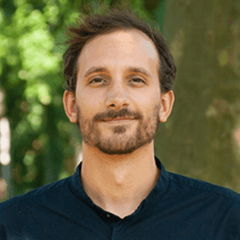How circular is your city?
Our Circle City Scan deep dives into resource consumption and waste generation patterns for different sectors in your city: from the built environment to food and mobility systems. It is a five-phase multi-stakeholder process of co-developing action plans to move you closer to implementation.
The Circle City Scan
The Circle City Scan
To guide cities in their transition, we have developed the Circle City Scan, a tried-and-tested method comprising five phases:
Step 1: City baseline analysis
We help cities prioritise focus sectors by comparing the city's economic activities with their impacts on key metrics (such as jobs, emissions and economic value added), and identifying relevant local policies and activities already underway. Priority sectors can then be analysed in further depth using Material Flow Analysis.
Step 2: Material Flow Analysis
Using Material Flow Analysis (MFA), we identify the key points for intervention within city sectors. The MFA combines multiple data points from a variety of sources, and provides a visual overview of resource use and waste generation by the city.
The analysis helps urban change-makers to better understand resource use patterns in their city, and to recognise their role in shifting from linear toward circular.
Step 3: Development of a circular strategy
Once the focus areas for a city have been identified, we help stakeholders to develop a strategy based on the most impactful interventions.
Drawing on our extensive experience and a database of over 3,000 real-world case studies, we work with local stakeholders to select those most relevant to the context and goals. We conduct a scenario analysis on a shortlist of promising opportunities to estimate their likely impacts and choose the best options. As an outcome, the city receives a strategy for pursuing the most impactful circular opportunities, supported by data and best practices, and co-developed with core stakeholders.
Step 4: Circular city action planning
To transform promising circular opportunities into local action, we co-develop step-by-step roadmaps that city stakeholders can act upon.
We provide neutral spaces for government and non-government actors to work together on addressing systemic challenges, ranging from the development of innovative pilot projects to the revision of policies to create a more enabling environment for the circular economy. We help them identify the key objectives they would like to achieve, the indicators that will aid in assessing progress toward these objectives, and the actions required to move from the current state.
Step 5: Local business accelerator
Local businesses can help the cities they operate in become more circular, for example, through upscaling or diversifying their offerings, making the value chain more circular. Our expert team provides training on the principles of circular business and linear risks, and shares real-life case studies and success stories from similar contexts. Where needed, we help form communities of practice to overcome practical obstacles, from financing and accounting to regulation and bureaucracy: accelerating progress and creating a connected network of local businesses.



